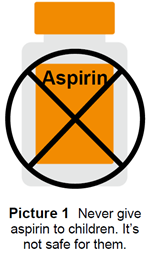Abdominal Pain: Outpatient

Belly (abdominal) pain can happen for many reasons. A final diagnosis may not be made during your child’s visit. Follow the directions you get at the end of the visit (discharge instructions) and monitor your child’s symptoms for the next 24 hours.
- Do not ignore symptoms that are new or keep getting worse.
- Try to have your child drink fluids. This helps keep them hydrated.
- Have them rest until they feel better.

- If they feel warm to the touch, symptoms get worse, or their behavior changes, take their temperature.
- A fever is a temperature over 100.4° Fahrenheit (F) or 38° Celsius (C).
- A high fever is a temperature over 101.4°F (38.3°C).
- Give your child over-the-counter (OTC) medicines like:
- Acetaminophen (Tylenol®) for fever or pain based on your child’s weight. Give it to them every 4 to 6 hours, as needed. Do not give more than 5 doses in 24 hours.
- Ibuprofen (Advil® or Motrin®) for fever or pain based on your child’s weight. Only give ibuprofen to children older than 6 months. Give it to them every 6 to 8 hours, as needed. Do not give more than 4 doses in 24 hours.
- Never give your aspirin to your child (Picture 1).
- If your child’s symptoms get worse or do not get better in 24 hours, follow up with their doctor or health care provider, or return to the emergency room.
Emergency Help
- For emergency symptoms, take your child to:
- Their doctor or health care provider’s office.
- The closest emergency room.
- Emergency symptoms include:
- Severe pain that lasts for more than 1 hour.
- Heavy or having a hard time breathing.
- Ongoing pain or pain that gets worse with activity. This pain may be mild to severe.
- Pain that keeps your child from walking.
- Pain around the belly button that moves to the lower, right part of the belly.
- Severe back pain.
- Pain in their groin or testicles.
- Pain along with vaginal discharge.
- Constant throwing up (vomiting).
- Blood or dark green fluid in their vomit.
- Blood in their pee (urine) or poop (stool).
- Are not able to drink fluids.
- Pee less often or make less pee than normal.
- Pain or burning when peeing.



